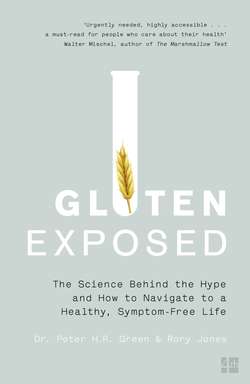Читать книгу Gluten Exposed: The Science Behind the Hype and How to Navigate to a Healthy, Symptom-free Life - Rory Jones, Dr. Green Peter - Страница 23
Widely Used Supplements That Cause Drug Interactions
ОглавлениеWe don’t want to focus on the trees (or their leaves) at the expense of the forest.
—DOUGLAS R. HOFSTADTER, PROFESSOR OF COGNITIVE SCIENCE
Recently several large studies have examined the contents of various supplements. Many were tested and found to contain allergens, little or none of the herb or vitamin on the label, or a banned substance. Others are potentially dangerous in their interaction with common medications. A few are worth mentioning.
St. John’s Wort
St. John’s wort is one of the 10 best-selling supplements in the U.S. It is marketed as a mood elevator and is arguably the most popular supplement to treat depression. But St. John’s wort can speed the breakdown of various prescription medicines by eliminating them from the body before they can take full effect. This includes anticoagulants (blood thinners), oral contraceptives, antidepressants, cancer drugs, and immunosuppressants (causing transplant rejection).
Vitamin K
Vitamin K helps in blood coagulation but in excess can block the effect of medications like warfarin (blood thinners) used to prevent blood clots. Because it is now added to many calcium supplements and found in multivitamins, it can quietly reach high levels in the body and trigger problems before someone is aware of any issue.
Vitamin C
Vitamin C will facilitate iron absorption. People with a tendency to absorb excess iron should be careful with this supplement.
Zinc
Taken by many to “shorten a cold,” zinc has numerous GI side effects and interacts with antibiotics and antihypertensive medications.
Ginseng
Used in Chinese medicine for heart issues, this is another popular herb that can interfere with anticoagulant drugs like warfarin and can interact with some antidepressant medications. It has been implicated in neonatal death when taken by the mother.
The list is long. Licorice, black cohosh, echinacea, ginkgo, and many of the most popular herbs are the subject of questionable claims, drug interactions, and lack of quality control.
You should limit vitamin intake to the vitamins you are deficient in—validated through testing and as directed by your doctor.
